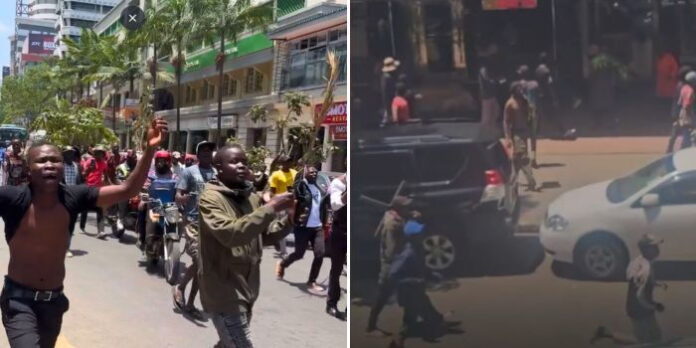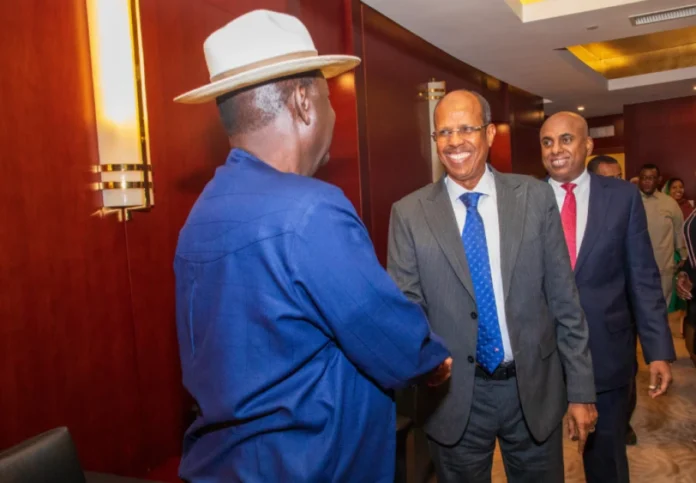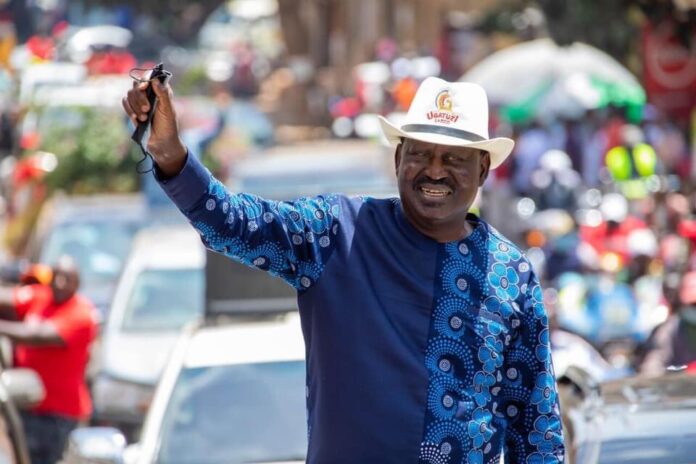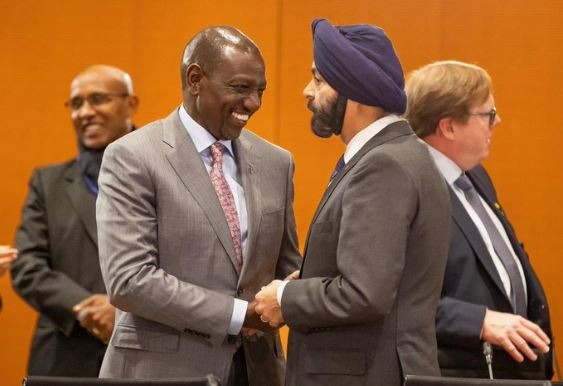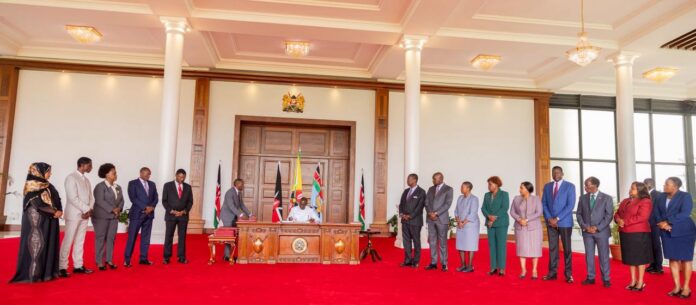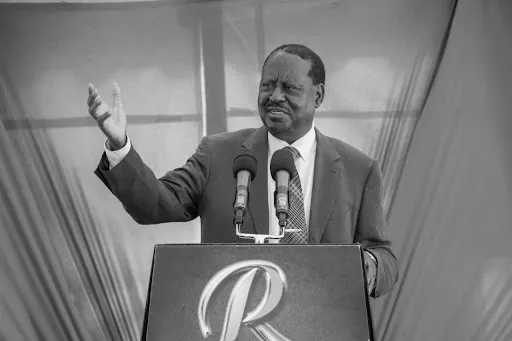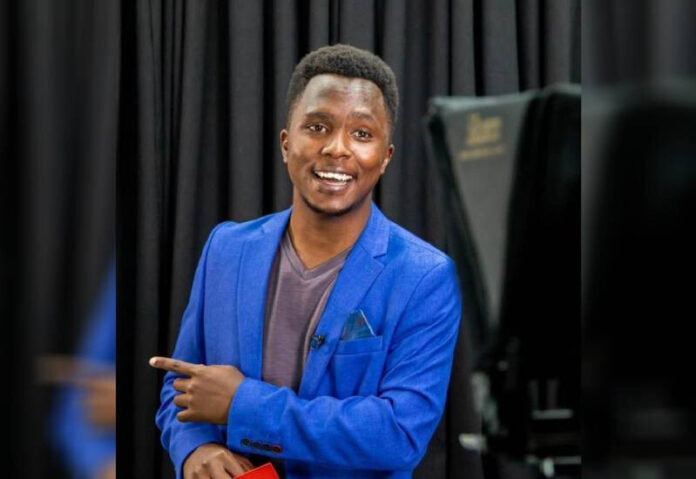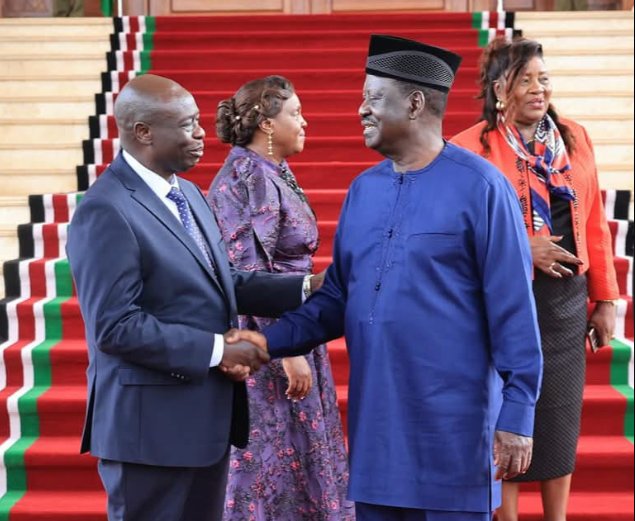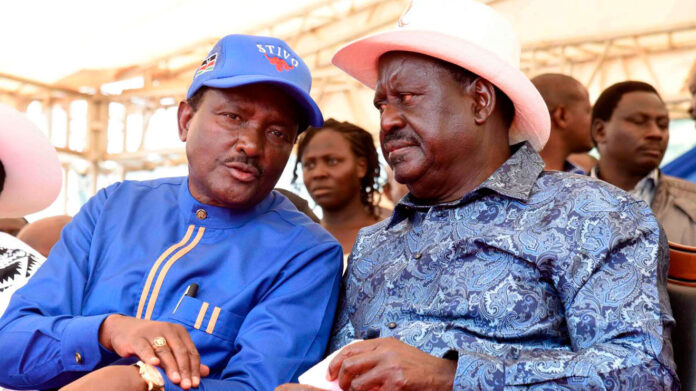Raila Amolo Odinga was born on January 7, 1945, in Maseno, Nyanza Province, as the son of Jaramogi Oginga Odinga, Kenya’s first vice president, and Mary Ajuma Odinga.
The Odinga family, part of the Luo ethnic community, played a central role in Kenya’s independence movement.
Jaramogi’s political activities, including his resignation from the vice presidency in 1966 over differences with President Jomo Kenyatta, exposed Raila to national politics and governance from an early age.
Education
Odinga began his formal education in Nyanza mission schools, attending Kisumu Union Primary School and later Maranda Primary School. He proceeded to Maranda High School in Bondo, a leading institution known for producing Luo intellectuals.
In 1962, at 17, he left secondary school to pursue studies abroad in East Germany, enrolling at the Herder Institute in Leipzig to learn German language and culture. He later attended the Technical University of Magdeburg, earning a Master of Science degree in Mechanical Engineering in 1970.
Raila also completed short courses at the British Standards Institution, the National Bureau of Standards in Washington, D.C., and the University of Denver, focusing on quality control and standardisation.
Upon returning to Kenya, Raila initially pursued a career in academia and enterprise. He served as an assistant lecturer in the University of Nairobi’s Department of Mechanical Engineering from 1970 to 1974 and co-founded engineering firms, including Franz Schineis and Partners and Standard Processing Equipment Construction & Erection (SPECTRE Ltd.).
He later joined the Kenya Bureau of Standards, rising to Deputy Director, where he oversaw product standardisation and compliance.
Political career
Raila Odinga entered politics in 1992 after six years’ detention (1982-1988) for the 1982 coup attempt. He joined the Forum for the Restoration of Democracy-Kenya (FORD-Kenya), winning the Langata parliamentary seat in 1992 and securing re-election in 1997.
In 1997, he contested the presidency as the National Development Party (NDP) candidate, garnering 10.8% of the vote.
In 2001, NDP merged with KANU, and Odinga was appointed Energy Minister (2001-2002), expanding rural electrification from 10% to 20%. In 2002, he co-founded the Liberal Democratic Party, which later merged into the National Rainbow Coalition (NARC), leading to his appointment as Roads Minister (2003-2005), where he launched 7,000 km of rural roads.
In 2005, he led the “Orange” campaign against President Kibaki in the constitutional referendum before founding the Orange Democratic Movement (ODM).
Odinga was ODM’s presidential candidate in 2007, winning 46.4% of the vote; disputed results triggered violence claiming over 1,200 lives, eventually leading to his role as Prime Minister (2008-2013) in a grand coalition, during which GDP grew 5.5% annually and the 2010 Constitution was enacted. He ran again in 2013 (43.3%), 2017 (48.5%), and 2022 (48.9%), accepting results after court rulings.
In 2013 and 2017, he emerged as the presidential candidate for the Coalition for Reform and Democracy (CORD) and NASA, respectively, galvanising a broad coalition of reform-minded voters disillusioned with entrenched corruption and economic stagnation.
He was unsuccessful in both attempts, as he lost to Uhuru Kenyatta.
Running on a platform of anti-corruption reforms, inclusive governance, and sustainable development, he secured significant support in urban centres and among the youth, challenging the political establishment and elevating national discourse on transparency and equity during both election cycles.
In 2018, he initiated the “Handshake” with Uhuru Kenyatta and launched the Building Bridges Initiative (BBI), whose amendments were rejected in 2021.
In 2024, he was nominated for the African Union Commission chair but withdrew to focus on Kenyan reforms. As of October 15, 2025, Odinga, 80, leads ODM as an opposition reform advocate.
On February 15, 2025, during the 38th AU Summit in Addis Ababa, Ethiopia, Raila Odinga was eliminated in the sixth round of voting for African Union Commission Chairperson.
Djibouti’s Mahamoud Ali Youssouf won in the seventh round with 33 votes from 49 participating states, succeeding Chad’s Moussa Faki Mahamat.
Odinga led early rounds, 20 votes in the first against Youssouf’s 18 and Madagascar’s Richard Randriamandrato’s 10, but regional divisions, including Southern African Development Community support for Randriamandrato, split votes. Odinga ended with 22 votes in his final round.
Following the election, Raila addressed the outcome publicly, acknowledging the results and reiterating his commitment to serve the African continent in other capacities.
“When you go to a contest, there can only be two outcomes: you can win or you can lose. So this is one of them,” he said, congratulating Youssouf and thanking voters for upholding AU democracy.
The defeat refocused Odinga on Kenya. On March 7, 2025, at Nairobi’s Kenyatta International Convention Centre, Odinga and President William Ruto signed a 10-point Memorandum of Understanding (MoU) between ODM and UDA.
The pact aimed to implement the National Dialogue Committee report on youth unemployment, electoral reforms, devolution, judicial independence, and national cohesion.
By August 18, 2025, the first joint parliamentary group had met in Karen, Nairobi. At 80, Odinga continued mentoring through ODM@20 celebrations, bridging divides in Kenya’s democracy.
Personal life and legacy
Odinga married Ida Betty Oyoo in 1971, a former teacher and businesswoman. The couple had four children: Fidel (deceased 2015), Rosemary, Raila Jr, and Winnie, elected to the East African Legislative Assembly in 2022.
Known by the nicknames “Agwambo” and “Baba”, Odinga combined his engineering expertise and political acumen to influence Kenyan infrastructure, governance, and reform.
He also built a business portfolio, including East African Spectre, contributing to a net worth exceeding $30 million.
Odinga passed away at the age of 80 in India. His decades-long involvement in politics, spanning detention, coalition building, and constitutional reforms, established him as a central figure in Kenya’s modern political history.









